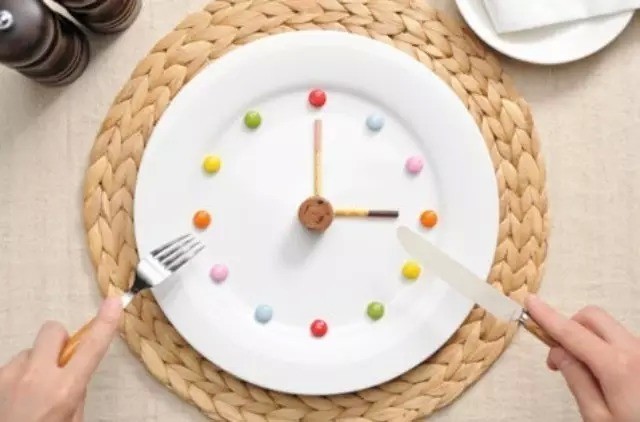原味人文風情:
So, if you're like me, you probably have at least a few bad habits you would like to break.
如果你和我一樣,你可能至少有幾個想改掉的壞習慣。
But it's tough because no matter how hard I try, I seem to slip back into the same old routines again and again.
不過那很難,因為不管我多努力嘗試,我似乎一次又一次地重蹈覆轍。
In the last decade, we've learned a lot about how habits work.
過去十年來,我們對習慣的運作有許多了解。
That's Charles Duhigg, author of the book The Power of Habit.
那是 Charles Duhigg,《習慣的力量》那本書的作者。
And in particular we've learned the neurological structure of a habit.
而我們特別認識到習慣的神經結構。
He says that we tend to think of habits as a single thing, but actually...
他說我們往往把習慣想成單獨一件事,但事實上...
Each habit has three components: There's a cue, which is like a trigger for a behavior to start.
每個習慣都有三項構成要素:有提示,那就像觸發一個行為開始的東西。
And then there's a routine, which is the behavior itself.
然后是慣性行為,也就是行為本身。
And then, finally, a reward, which is how our brain learns to encode that automatic behavior for the future.
接著最后,獎勵,也就是我們的大腦如何為未來學習替那自發行為編碼。
And one of the big differences is that for years, when people thought about habits, they focused in on the routine, on the behavior.
其中一個最大的差異是,幾年來,當人們想到習慣時,他們專注在慣性行為、行為上面。
But what we now know is that it's these cues and these rewards that really shape how habits occur and how to change them.
不過我們現在知道,這些提示和這些獎勵,它們才是真正構成習慣形成和改變習慣的方法。
And Charles says that whether we like it or not, this kind of habit formation is endemic to our brain.
Charles 表示,無論我們喜不喜歡,這種習慣形成是我們的大腦特有的。
And what it will do is our brain will latch on to a cue that it associates with a behavior and a particular reward.
它的作用是,我們的大腦會抓住一個提示,一個大腦連結到某個行為和特定獎勵的提示。
And over time, that cue and that reward become more and more and more, sort of, intertwined.
隨時間過去,那提示和那獎勵會變得有點越來越糾纏在一起。
A particular part of your brain named the basal ganglia will relate them together.
你腦內一個稱為基底核的特定區塊會將它們連結在一起。
And the behavior that's associated with that, that will just sort of happen automatically.
而和那相關的行為,那就會有點不自覺地發生。

But Charles says the good news is we can also use this knowledge to our advantage.
不過 Charles 表示,好消息是我們可以善用這項知識。
There was a big study that was done about how to create exercise habits.
有一個關于如何養成運動習慣的重大研究。
And so what they did is they told a group of people, "Okay, first of all, choose an obvious cue.
他們所做的事是告訴一群人:「好,首先,選一個明顯的提示。
Always go running at the same time every day or put your workout clothes next to your bed so that you see them first thing when you wake up."
每天都在同樣時間去跑步,或把運動服放在床邊,好讓你起床第一眼就看到它們。」
And then they said, "And then go for a run or go workout. And when you get back from exercising, give yourself a small piece of chocolate."
接著他們說:「然后去跑步或健身。在你運動完回來時,給自己一小塊巧克力。」
Now, this is kind of counterintuitive, right? Because people who are exercising are trying to lose weight, not eat more chocolate.
現在,這有點違反直覺,對吧?因為運動的人是在試著減重,不是吃更多巧克力。
And yet what the researchers knew is that their brain needed that reward.
然而研究者所知的事情是,他們的大腦需要那獎勵。
Their basal ganglia needed some reward.
他們的腦部基底核需要一些獎勵。
And what they found was that people who ate a small piece of chocolate after coming home from a run or a workout, they were much more likely to start exercising habitually.
他們發現人們,跑步或健身完回家有吃一小塊巧克力的人,他們比較有可能開始規律運動。
So, according to Charles, whether you want to break a habit or start a new habit, the key is to divide the habit into its component parts: cue, routine, and reward, and design it for the result that you want.
所以,根據 Charles 所說,無論你是想改掉一個習慣,或開始養成一個新習慣,關鍵是將習慣劃分成它的構成要素:提示、慣性行為以及獎勵,并依你想達到的結果來設計。












